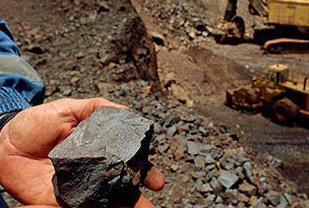China National Capital Mines, Iron Ore Mining

Since the beginning of 2014, Chinese companies have been making significant moves in the Australian mining sector, with acquisition values reaching nearly $3 billion—far surpassing the $738 million recorded in the same period last year. If this trend continues, investments from China into Australian mining firms this year could approach the peak of $11.7 billion seen in 2011.
This year has witnessed a surge in Chinese acquisitions of Australian mining companies. In mid-April, Zijin Mining Holdings announced its full acquisition of Au Brablin Gold for A$24.1 million (approximately $22.6 million), aiming to boost its gold reserves. Later in May, Baosteel, a major Chinese steel producer, and Australia’s Aurizon jointly offered A$1.4 billion (about $1.31 billion) to acquire Aquila Resources Ltd., seeking entry into the coal and iron ore sectors. Meanwhile, Guangdong Guangsheng Asset Management Company proposed a bid of A$1.44 billion (around $1.37 billion) for PanAust, a Brisbane-based copper company.
Bloomberg data shows that several Chinese companies, including Sichuan Tianqi Lithium and China National Nuclear Corporation, have also unveiled acquisition plans for Australian mining firms this year, investing $250 million and $216 million respectively.
Australian mining experts suggest that the current wave of Chinese acquisitions is driven by three main factors. First, many Australian mining companies are now undervalued. The weakening Australian dollar and the bursting of the mining bubble have led to sharp declines in share prices, creating attractive opportunities. For instance, Aquila and PanAust saw their stock prices drop by 74% and 65% respectively from their peaks, while Paladin Energy and Galaxy Resources, which were acquired by Chinese firms, fell by 92% and 96%.
Second, the Chinese government has eased regulations on overseas acquisitions. Paul Schroeder, a partner at King & Wood Mallesons Law Offices, noted that new policies have streamlined the approval process. According to the updated rules, projects involving non-sensitive countries and industries with investments under $1 billion no longer require approval from the National Development and Reform Commission, only record-keeping. Since Australia and the resource sector are not considered sensitive, this simplification makes it easier for Chinese companies to acquire Australian mining assets.
Third, the Australian government under Prime Minister Tony Abbott has shown a more open attitude toward Chinese investment. This has made the Foreign Investment Review Board more transparent and supportive of Chinese acquisitions, increasing the likelihood of further investment from China.
James Stuart, an Australian M&A lawyer who has advised Chinese companies like Baosteel and Anshan Iron and Steel, believes that state-owned enterprises recognize the importance of partnering with local firms to manage risks effectively. He predicts that Chinese acquisition activity will continue to grow this year.
Despite the recent surge, Michael Komesaroff, a mining consultant, warns that Chinese companies must avoid past mistakes and focus on profitable deals. “There's still a long way to go,†he said. “While some signs look good, they still need to prove themselves.â€
Cold Or Heat Flow Meter,Ultrasonic Cold Or Heat Flowmeter Machine,Dc Pipeline Integrated Heat Flowmeter,Electromagnetic Cold Flowmeter
Jiangsu Baichuang Instrument Group Co.,Ltd , https://www.subcip.com